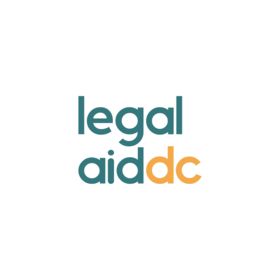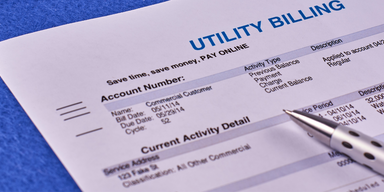Legal Aid DC submitted comments to the Department of Education on Monday, raising serious concerns about the legality of possible changes under consideration by the Trump Administration to the Public Service Loan Forgiveness (PSLF), a critical program that draws talented graduates to public interest and community service professions, including civil legal services.
“Many of Legal Aid DC’s staff and our colleagues across the legal services field use PSLF to pursue careers helping people facing legal crises navigate our courts,” said Legal Aid DC Executive Director Vikram Swaruup. “Restricting the program’s availability could undermine the ability of organizations like ours to serve people living in poverty and have a chilling effect on our efforts to close the growing access to justice gap.”
Congress created the PSLF program with bipartisan support in 2007 to make public interest work more accessible and encourage job seekers to pursue careers with a wide range of government agencies and nonprofits in the face of soaring education costs. The program typically requires a borrower to make 10 years’ worth of payments on their student loans while working full-time in the public interest before forgiving the remaining balance. More than 1 million public service workers have benefitted from the program, and organizations including Legal Aid have been able to recruit and retain attorneys and staff due to the debt relief PSLF offers.
President Trump issued an executive order on March 7, 2025 that seeks to exclude employers from PSLF that it claims “engage in activities that have a substantial illegal purpose” and directs the Secretary of Education to revise regulations governing the program. The executive order targets organizations that provide services to undocumented residents, migrants, transgender individuals, and those that support diversity, equity, and inclusion initiatives.
Legal Aid DC responded to the call for public comment and outlined several critical issues with the proposed changes to PSLF, including:
- Lack of legal authority. Legal Aid stated that the Department of Education lacks the authority to limit PSLF eligibility and redefine “public service” based on the criteria outlined in the executive order. The law Congress passed does not allow the Department to modify the program in the ways the order directs.
- Concerns for legal service providers. Legal Aid also commented that any changes must make clear that providing legal representation to people accused of violating a law does not violate the law or aid and abet illegal activity. Access to high-quality legal representation is a cornerstone of our justice system, and restricting PLSF in ways that target such representation would violate several constitutional provisions, including the First Amendment right to petition the government.
- Changes cannot be retroactive. Legal Aid emphasized that borrowers who are already participating in the PSLF program should not be affected by any forthcoming changes. The Department of Education does not have the legal authority to change the rules midstream for existing student loans and for existing borrowers who have based career and educational decisions on the program.
- Changing PSLF rules would undermine the program’s purpose. Legal Aid commented that altering the PLSF rules along the lines of the executive order would undermine Congress’s purpose in enacting the program, which was to encourage public service, including the representation of those who otherwise lack access to the legal system.
- Other repayment plans should not be affected. Legal Aid explained that two other student loan programs – Income Based Repayment Plans and Income Contingent Repayment Plans – were not included in the recent executive order and should therefore not be a part of rulemaking related to PSLF. And still, as with the PSLF, the agency similarly lacks the authority to fundamentally curtail eligibility for these programs.




